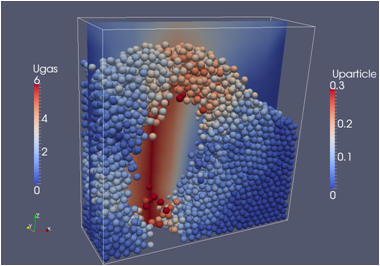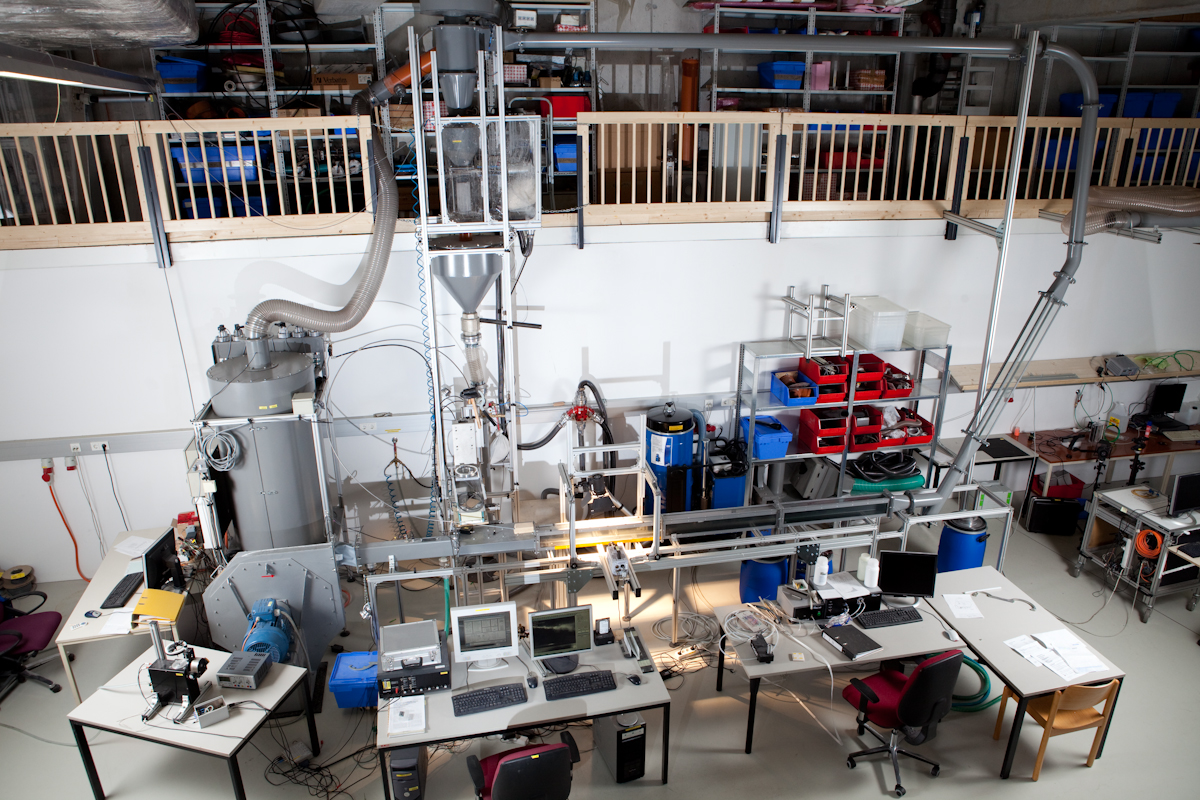CD Laboratory for Particulate Flow Modeling
Head of research unit
Commercial Partner
Duration
01.01.2016 - 30.04.2016
Thematic Cluster

The subject of research is the numerical simulation of so-called particulate flows. These are categorised and described according to two main mathematical models.---- A particulate flow is created by the interaction between solid particles or between the particles and a continuous fluid (liquid or gas). One example of a particulate flow is coarse-grained bulk material during a loading process. Another example is dust particles in a separator known as a gas cyclone. ----In the CD Laboratory, such flow processes are described numerically and thus made mathematically accessible. Models for simulating particulate flows are subsequently developed on the basis of this mathematical description. The necessary models are divided into two types: So-called Lagrangian models are used to describe the movement of individual particles. In the models known as Eulerian models, on the other hand, the properties of the individual particles are added together and considered as an - artificial - continuum. ----For the modelling of real flows, the model that corresponds most closely to the dominant flow regime must be selected as the basis. In some cases, however, an initially dominant flow regime can change. This means that the selected model variant is no longer suitable for simulation. In this case, several models are coupled together. Accompanying analytical considerations and experimental tests supplement the development of suitable models. The primary aim is to describe the physical core phenomena of particulate flows with a numerical model that is as efficient as possible. This ensures the practical relevance of the models developed.---- The mathematical models resulting from the modelling are then made available to other research groups worldwide via a dedicated open source website (www.cfdem.com). This international networking serves the efficient testing of the developed models and also makes an important contribution to their further development.

Related news
Christian Doppler Forschungsgesellschaft
Boltzmanngasse 20/1/3 | 1090 Wien | Tel: +43 1 5042205 | Fax: +43 1 5042205-20 | office@cdg.ac.at


![[Translate to English:] [Translate to English:]](/fileadmin/_processed_/c/9/csm_211006_CDG-Preis_Esterl_Pirker_Gerzabek_76587d817e.jpg)
